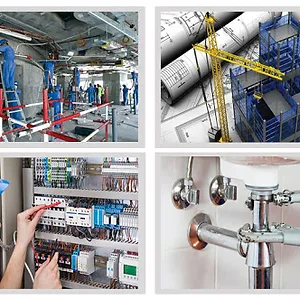Engineering Design
-
Structural Design: Engineers work closely with architects to ensure that buildings can withstand the loads they will encounter while also meeting aesthetic and functional requirements. This includes designing foundations, beams, columns, and other structural elements.
-
Mechanical Systems: Engineers design heating, ventilation, and air conditioning (HVAC) systems, plumbing, and fire protection systems. These systems are essential for maintaining comfort, safety, and functionality within buildings.
-
Electrical Systems: Engineers design electrical distribution systems, lighting, and communication networks within buildings. This ensures that buildings are equipped with reliable and efficient electrical infrastructure.
-
Sustainability: Engineers play a crucial role in integrating sustainable design principles into architectural projects. This includes optimizing energy efficiency, reducing environmental impact, and incorporating renewable energy systems.
-
Materials and Construction Techniques: Engineers advise on the selection of materials and construction methods based on their structural integrity, durability, and cost-effectiveness. They also ensure compliance with building codes and regulations.
-
Safety and Codes: Engineers ensure that architectural designs comply with safety standards and building codes to protect occupants and the public. This includes considerations for earthquake resistance, fire safety, and accessibility.
-
Integration of Technology: Modern architectural projects often incorporate advanced technologies such as Building Information Modeling (BIM) and parametric design. Engineers help implement these technologies to streamline design processes and improve project outcomes.
.jpg)
